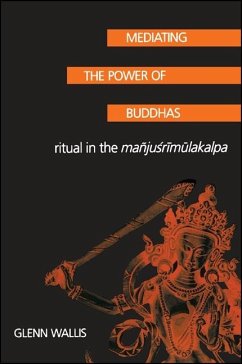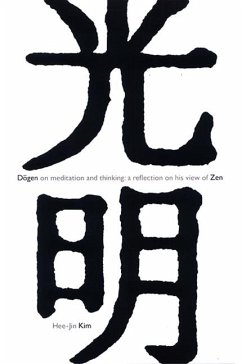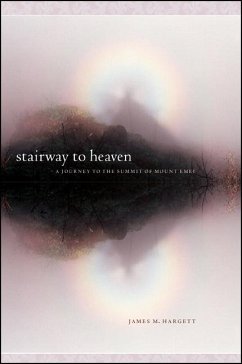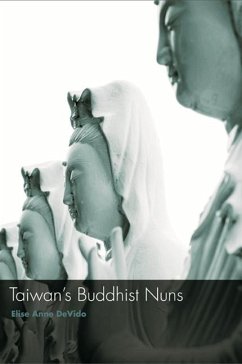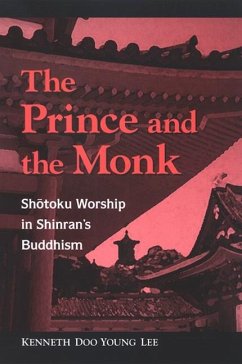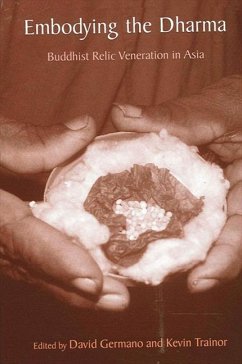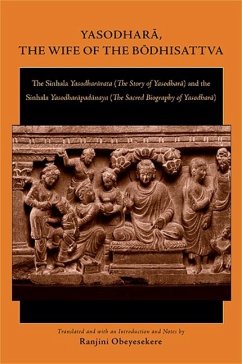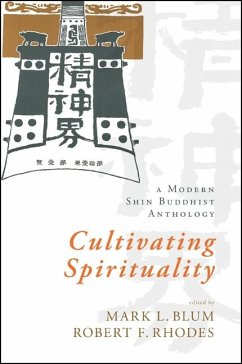
The Hongzhou School of Chan Buddhism in Eighth- through Tenth-Century China (eBook, PDF)

PAYBACK Punkte
13 °P sammeln!
A comprehensive study of the Hongzhou school of Chan Buddhism, long regarded as the Golden Age of this tradition, using many previously ignored texts, including stele inscriptions.This book provides a wide-ranging examination of the Hongzhou school of Chan Buddhism-the precursor to Zen Buddhism-under Mazu Daoyi (709-788) and his successors in eighth- through tenth-century China, which was credited with creating a Golden Age or classical tradition. Jinhua Jia uses stele inscriptions and other previously ignored texts to explore the school's teachings and history. Defending the school as a full-...
A comprehensive study of the Hongzhou school of Chan Buddhism, long regarded as the Golden Age of this tradition, using many previously ignored texts, including stele inscriptions.
This book provides a wide-ranging examination of the Hongzhou school of Chan Buddhism-the precursor to Zen Buddhism-under Mazu Daoyi (709-788) and his successors in eighth- through tenth-century China, which was credited with creating a Golden Age or classical tradition. Jinhua Jia uses stele inscriptions and other previously ignored texts to explore the school's teachings and history. Defending the school as a full-fledged, significant lineage, Jia reconstructs Mazu's biography and resolves controversies about his disciples. In contrast to the many scholars who either accept or reject the traditional Chan histories and discourse records, she thoroughly examines the Hongzhou literature to differentiate the original, authentic portions from later layers of modification and recreation.
The book describes the emergence and maturity of encounter dialogue and analyzes the new doctrines and practices of the school to revise the traditional notion of Mazu and his followers as iconoclasts. It also depicts the strivings of Mazu's disciples for orthodoxy and how the criticisms of and reflections on Hongzhou doctrine led to the schism of this line and the rise of the Shitou line and various houses during the late Tang and Five Dynasties periods. Jia refutes the traditional Chan genealogy of two lines and five houses and calls for new frameworks in the study of Chan history. An annotated translation of datable discourses of Mazu is also included.
This book provides a wide-ranging examination of the Hongzhou school of Chan Buddhism-the precursor to Zen Buddhism-under Mazu Daoyi (709-788) and his successors in eighth- through tenth-century China, which was credited with creating a Golden Age or classical tradition. Jinhua Jia uses stele inscriptions and other previously ignored texts to explore the school's teachings and history. Defending the school as a full-fledged, significant lineage, Jia reconstructs Mazu's biography and resolves controversies about his disciples. In contrast to the many scholars who either accept or reject the traditional Chan histories and discourse records, she thoroughly examines the Hongzhou literature to differentiate the original, authentic portions from later layers of modification and recreation.
The book describes the emergence and maturity of encounter dialogue and analyzes the new doctrines and practices of the school to revise the traditional notion of Mazu and his followers as iconoclasts. It also depicts the strivings of Mazu's disciples for orthodoxy and how the criticisms of and reflections on Hongzhou doctrine led to the schism of this line and the rise of the Shitou line and various houses during the late Tang and Five Dynasties periods. Jia refutes the traditional Chan genealogy of two lines and five houses and calls for new frameworks in the study of Chan history. An annotated translation of datable discourses of Mazu is also included.
Dieser Download kann aus rechtlichen Gründen nur mit Rechnungsadresse in A, D ausgeliefert werden.





